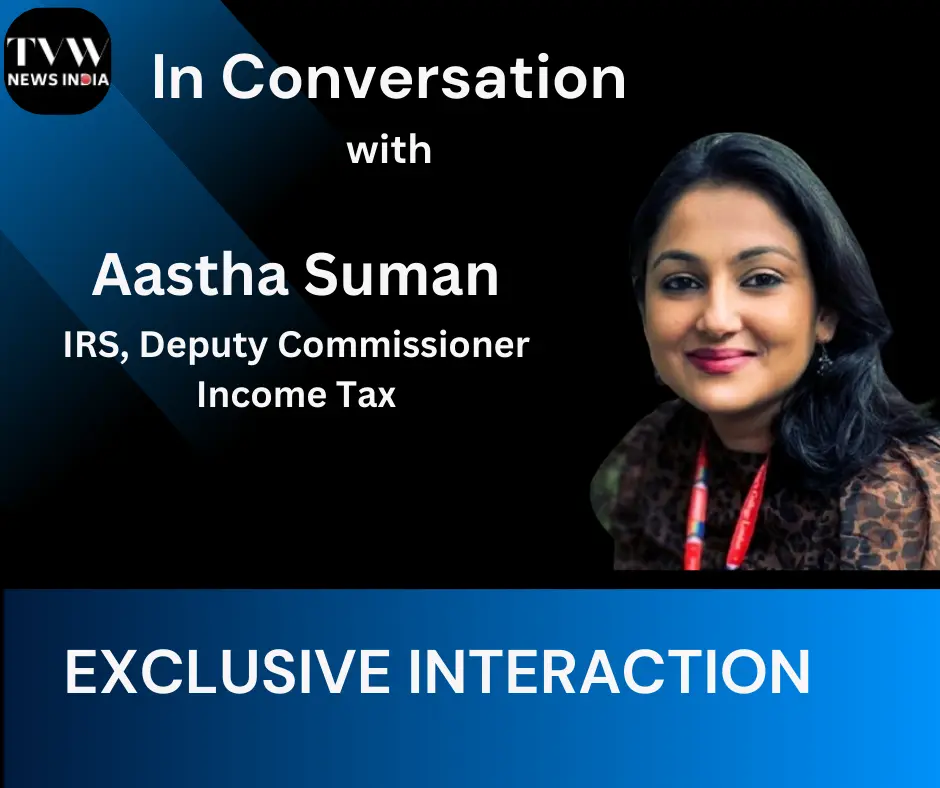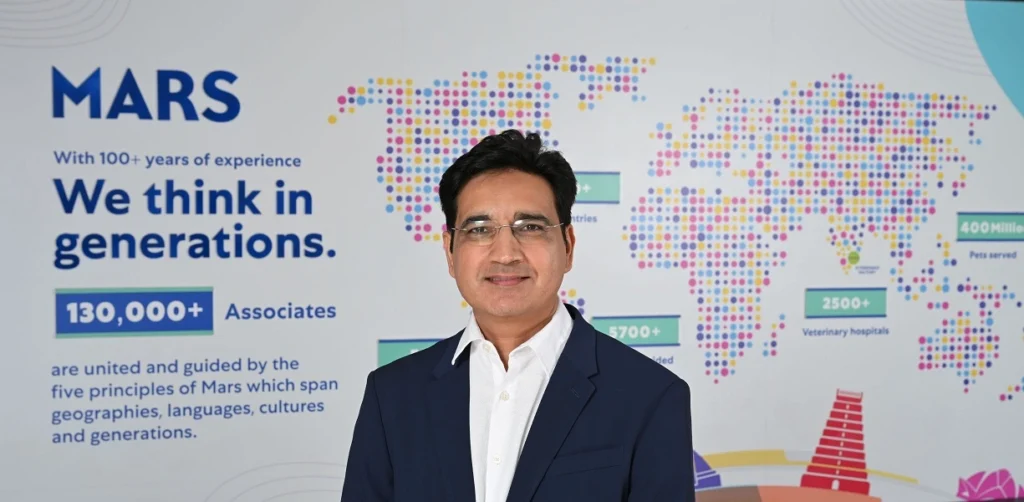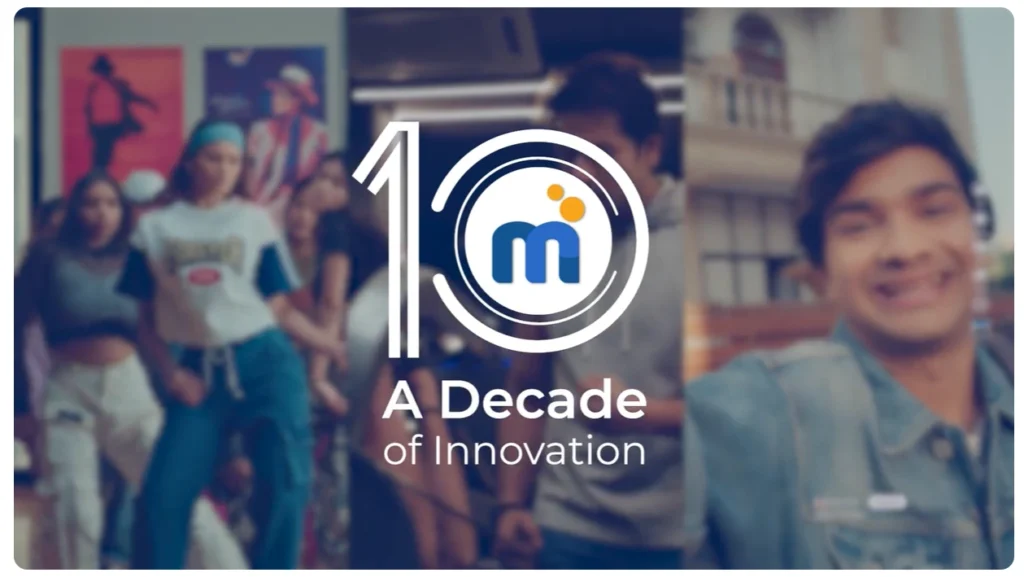In a recent interaction with TVW News India, Aastha Suman, Deputy Commissioner of Income Tax, shared valuable insights into the evolving landscape of India’s taxation system. She highlighted key reforms aimed at simplifying tax compliance, enhancing transparency, and fostering a more taxpayer-friendly environment. She also discussed the importance of leveraging technology and data analytics in streamlining processes within the department, ensuring timely assessments, and curbing tax evasion. Her views reflected a commitment to aligning India’s tax policies with the broader goals of ease of doing business and sustainable economic growth.
How do you see the evolving tax policies in India impacting economic growth? What role does the Income Tax Department play in supporting the government’s broader economic goals?
While India’s tax policies continue to evolve, their core principles remain firmly intact.
India, as a welfare state, prioritizes alleviating poverty and ensuring access to essential services like healthcare, education, and social security. The role of tax policies, particularly direct taxes, is crucial in generating the resources needed to support these initiatives and ensuring that the country’s economic growth is equitable and inclusive. This fundamental objective of taxation remains unchanged.
However, what has evolved is a significant shift towards taxpayer-centric governance. Recognizing the importance of fostering entrepreneurship in India’s growth story, recent tax policies emphasize simplifying compliance, improving taxpayer services, and enhancing the ease of doing business. This marks a notable departure from the earlier focus on revenue collection and enforcement. Today, the emphasis is on creating a supportive environment for businesses, which is vital for driving sustainable economic growth in India’s Amrit Kaal.
The Income Tax Department plays a critical role in facilitating the government’s economic agenda by promoting ease of doing business and enhancing taxpayer experience. It is one of the most digitized, technology-driven departments, which has significantly streamlined tax processes. It aims to make tax compliance seamless and less burdensome, with India being among the few countries to formally recognize taxpayers’ rights through the Taxpayer’s Charter.
The current focus is on simplifying tax laws and procedures to make them more understandable and easier to comply with.Priority is given to time-bound grievance redressal through multiple platforms, including CPGRAMS, E-Nivaran, Aykar Seva Kendras etc.Managing tax litigation has also been a priority, evident through initiatives like the Vivad se Vishwas scheme, revision of monetary limits on appeals, and deploying additional resources to expedite smaller cases.Most importantly, the department has embraced faceless audits to ensure transparency and reduce human intervention. Case selection for audits is now driven by AI and data analytics, eliminating discretion and ensuring fairness.
The department’s commitment to continuous improvement is evident through our self-awareness and data-driven approach. Regular feedback from the field allows us to identify gaps in policy and law, which are swiftly addressed. The digitization of data has not only enhanced efficiency but also facilitated better decision-making at all levels of governance.
With the adoption of digital technologies in tax administration, such as efiling, and online assessments, what are the key benefits and challenges? What is the department doing to ensure security and privacy?
The use of AI and digital technologies has been transformative for tax administration. It has simplified compliance, making it faster and easier for taxpayers to file returns, with quicker processing and refund generation. Additionally, in the case of audits, the department can now target cases more effectively by analyzing historical data, reducing unnecessary disturbances to honest taxpayers.
However,like any technological system, occasional issues with software or websites are inevitable. As we adopt new IT platforms, such as moving from AST to ITBA or introducing updates to the e-filing portal, challenges arise, particularly when data needs to be mirrored correctly. These transitions also require our workforce to unlearn old systems and adapt to new ones efficiently.
While technologies like call centers and chatbots, enhanced by Natural Language Processing, are helpful, they can sometimes feel mechanical for taxpayers with more complex issues. In such cases, human intervention is necessary, and taxpayers have the option to reach out directly to their jurisdictional assessing officers.
Moreover, while automation enhances efficiency, there remains a need for human empathy. Some taxpayers, especially during difficult times like the COVID-19 pandemic, prefer speaking to a person rather than interacting with a chatbot, as they seek understanding rather than just solutions.
In relation to security and privacy, the department has implemented multiple layers of protection that adhere to best practices. Moreover,access to data is strictly on a need-to-know basis, ensuring that sensitive taxpayer information is safeguarded at all times
How is the use of data analytics and artificial intelligence transforming the way income tax department operates? Can you share with examples how these technologies have improved efficiency and compliance?
The adoption of data analytics and AI has been a game changer for the Income Tax Department. These technologies allow us to better identify high-risk cases for audit by analyzing vast amounts of historical and real-time data, significantly improving the accuracy of case selection. This ensures that compliant taxpayers are not unnecessarily disturbed, while focusing our efforts on areas of higher risk.
Moreover, AI and data analytics are instrumental in shaping and refining tax laws. As Tim Edgar pointed out, tax laws are inherently complex due to their multiple functions. However, through the insights provided by AI, we can identify gaps and inefficiencies in the system, allowing us to continually improve and simplify the tax code.
In an increasingly globalized world, how is the income tax department collaborating with international agencies to address issues like tax havens, transfer pricing,and cross-border tax evasion?
India has become a key voice on the global stage, particularly in advocating for the interests of the Global South in international tax matters. Historically, international tax laws were shaped by capital-exporting developed nations, leaving countries like India with limited influence. However, this is changing, and India is now playing a pivotal role in reshaping global tax rules.
India is actively involved in negotiations to address critical issues such as taxation of the digital economy and curbing Base Erosion and Profit Shifting (BEPS) by multinationals. The country has a strong presence in both the United Nations (UN) and the Organisation for Economic Co-operation and Development (OECD), which are at the forefront of these discussions.
Moreover, India is deeply engaged in international information exchange frameworks. It participates in the OECD’s Country-by-Country Reporting initiative and has signed intergovernmental agreements like the USA’s Foreign Account Tax Compliance Act (FATCA). Through the OECD’s Global Forum on Transparency and Exchange of Information for Tax Purposes, India actively contributes to standards on tax transparency and the automatic exchange of information. Officers from the Indian Revenue Services have been instrumental in these efforts.
As a woman in the leadership position within a traditionally male dominated field, what challenges have you faced,and how have you overcome them? What advice do you have for young women aspiring to join the civil services?
I have been fortunate to have strong, inspirational women role models throughout my career, whose guidance helped shield me from many of the gender-based challenges I might have otherwise faced. One of my earliest mentors was Mrs. Geeta Ravichandran, who recently retired as the Principal Chief Commissioner of Income Tax, Mumbai. She was a no-nonsense officer with deep knowledge and unquestionable integrity, giving me the confidence to be authentic and assertive in my role.
I also had the privilege of working under Chaitali Panmei Madam, former Principal Chief Commissioner of Income Tax, Bengaluru. She brought immense empathy to her leadership, which is critical in our transition to a service-oriented department. Her approach reinforced the importance of compassion in decision-making at senior levels.
During my study leave in London last year, I was pleasantly surprised to see that the Indian Revenue Service is well-regarded internationally, thanks to the work of remarkable women officers. For example, Monica Bhatia, a 1990-batch IRS officer, led the OECD Secretariat of the Global Forum on Transparency and Exchange of Information for Tax Purposes. She was also named in the Global Tax 50, a prestigious recognition of the most influential figures in global tax.
Rather than facing challenges, I’ve witnessed many success stories of women excelling in the field.
To young women aspiring to join the Income Tax Department, I’d say this is an incredibly exciting time. If you are passionate about intellectually stimulating work, cutting-edge technology, and global exposure, this is a wonderful service to be a part of.
Looking ahead, what are your priorities for the income tax department in the next five years? How do you envision the role of the department evolving in response to the changing economic and technological landscapes?
In the coming years, my primary focus will be on expanding the tax base and raising tax awareness at all levels. This involves simplifying the tax system for the average citizen and making compliance as seamless as possible. Additionally, I aim to contribute to capacity building within the department. Having spent a year enhancing my own knowledge, I am committed to sharing these learnings to help strengthen the skills of our officers.
As technology continues to evolve at an unprecedented pace, the Income Tax Department must stay ahead by developing expertise in understanding how new technologies impact income generation. Our officers will need to devise effective policies and laws to tax these emerging streams of income. We also need to stay abreast of global advancements in technology to enhance our ability to detect tax evasion and improve enforcement.
Over the past decade, the department has successfully adopted cutting-edge technologies and adapted to rapid changes. This makes me confident that we are well-equipped to meet the challenges of the future head-on.
Please note that all the views provided above are personal.
Note: We are also on WhatsApp, LinkedIn, and YouTube, to get the latest news updates, Join our Channels. WhatsApp– Click here, and for LinkedIn– Click Here












